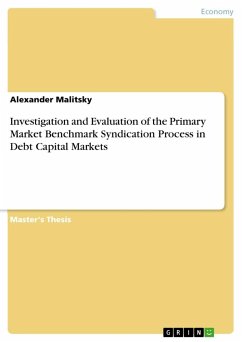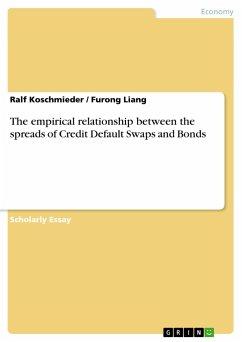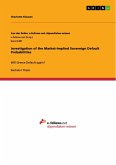Master's Thesis from the year 2017 in the subject Business economics - Investment and Finance, grade: 55, The University of Liverpool, language: English, abstract: The dissertation aims to analyze the process of issuing new bonds in the EUR debt capital markets and, more specifically, the approach by which investment banks consort with each other (syndicates) to jointly execute a new issue. In this thesis, the aspects of fairness, efficiency, and regulatory implications were first analyzed from a theoretical perspective in the literature review, and the information gleaned was thereafter combined with a practical view based on a survey conducted with 54 active syndicate professionals. Additionally, experts with more than ten years of experience were interviewed in order to enhance the reliability of the findings. The outcomes, therefore, showcase an extensive comparison between theory and practice, while also outlining prospective trends within the business of primary markets.In summary, this thesis reveals aspects of the syndication process, as it is executed on a daily practical basis, that appear contrary to a theoretical impression of efficiency and fairness. However, the input from current professionals highlights the immensely complex and varied applicable strategies, and that many aspects must be evaluated on a case-by-case basis.On the contrary, the newly implemented regulations that shape the syndication process were determined to be unable to comply with such sophisticated requirements. Thus the analysis concludes that the syndication business is self- regulating by nature and that it is harmed by a lack of equal application by the investment banks within the EUR area.Moreover, the syndication professionals indicated a strong trend towards automation and digitalization of the process, even though a more detailed investigation of this aspect showed that full exclusion of investment banks is not desirable because of a number of operational and strategic reasons.








